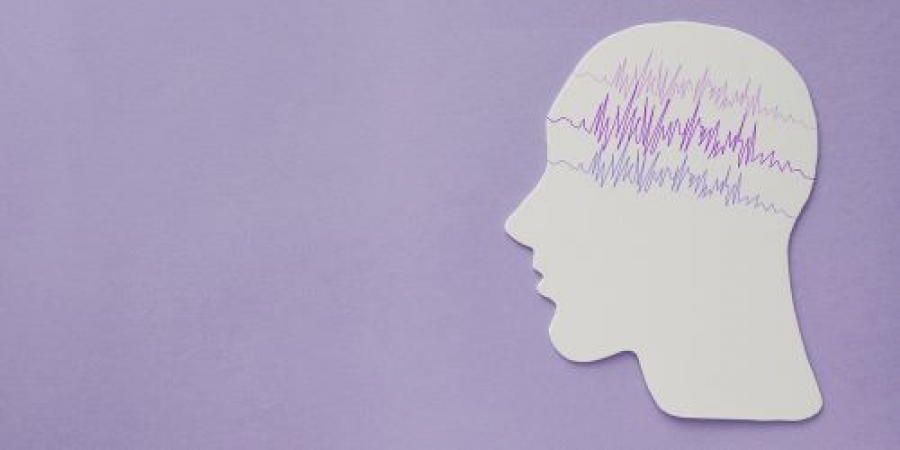Bipolar disorder can have a significant impact on an individual’s life, causing extreme mood swings, disruptions in daily functioning, and challenges in maintaining relationships. While traditional treatments such as medication and therapy have been the go-to options for managing symptoms, there is a growing interest in exploring alternative approaches that may complement or even surpass the effectiveness of conventional methods. Neurofeedback is one such therapeutic method that aims to train the brain to self-regulate and has the potential to provide lasting results as a bipolar disorder treatment in Dallas.
Introduction to Bipolar Disorder
Bipolar disorder is a mental health condition characterized by extreme shifts in mood, energy levels, and activity levels. People diagnosed with bipolar disorder experience episodes of mania or hypomania, which are periods of elevated mood, increased energy, and impulsiveness, followed by episodes of depression, characterized by feelings of sadness, hopelessness, and low energy. These episodes can last for days, weeks, or even months.
Symptoms and Characteristics
The main symptoms of bipolar will vary depending on whether someone is experiencing a manic or depressive episode. During a manic episode, a person may feel euphoric, have an inflated self-esteem, exhibit increased talkativeness, have racing thoughts, and engage in risky behavior such as excessive spending or drug use. They may also have difficulty sleeping, increased irritability or agitation, and trouble focusing or completing tasks.
On the other hand, during a depressive episode, someone may feel overwhelming sadness, have a loss of interest or pleasure in activities they once enjoyed, see changes in appetite and sleep patterns, have low energy levels, and have difficulty concentrating or making decisions. They may also have feelings of guilt or worthlessness, and in severe cases, may have thoughts of death or suicide. It is crucial for people with bipolar disorder to seek professional help and receive appropriate treatment.
How Bipolar Impacts the Brain
Bipolar disorder affects the brain through alterations in the levels of certain neurotransmitters. Neurotransmitters are chemicals that transmit signals between brain cells, and they play a crucial role in regulating mood, behavior, and cognition. This imbalance contributes to the extreme mood swings experienced by individuals with bipolar disorder.
This disorder also affects the structure and function of certain brain regions. Studies using brain imaging techniques have shown that patients with bipolar disorder have differences in the size and activity of specific brain areas. For example, the prefrontal cortex, which is responsible for decision-making and emotional regulation, may be smaller or less active in individuals with bipolar during depressive episodes.
Bipolar can also have an impact on circadian rhythm. Those living with bipolar disorder often experience disruptions in their sleep patterns, with periods of insomnia or hypersomnia. These disruptions can further exacerbate mood symptoms and contribute to the cycling between manic and depressive episodes.
Neurofeedback as an Innovative Treatment
While there are many routes when it comes to bipolar disorder treatment in Dallas, neurofeedback has emerged as an efficacious and holistic technique. Neurofeedback therapy uses real-time monitoring of brainwave activity to help patients gain control over their brain functions. It can be used to target specific brainwave patterns associated with mood regulation, decision-making, and other areas that are heavily impacted by bipolar.
Neurofeedback can help individuals with bipolar disorder gain a greater sense of control over their emotional states and reduce the frequency and intensity of mood swings. It can also enhance self-awareness and provide individuals with coping strategies that they can use outside of the neurofeedback sessions.
Advantages of Neurofeedback over Traditional Treatment Options
When it comes to treatment options for bipolar, neurofeedback has multiple advantages over traditional methodologies like medication. Here are just a few:
- Neurofeedback is a non-invasive and drug-free approach, which means that patients can avoid the potential side effects and dependency issues associated with medication.
- It is highly personalized and tailored to each person’s specific brain patterns and needs.
- It’s been cited as a long-term solution that aims to address the underlying causes of bipolar disorder rather than simply managing symptoms.
Get Started with Neurofeedback at Braincode Centers
If you’ve been searching for alternative bipolar disorder treatment in Dallas, then you should absolutely look into neurofeedback. Braincode Centers offers a comprehensive and personalized neurofeedback therapy program specifically designed for individuals seeking treatment for bipolar. Our combination of advanced technology and expert team members provides a safe and effective approach to managing symptoms, improving mood stability, and enhancing overall well-being.
Contact us today to learn more about this innovative treatment option

